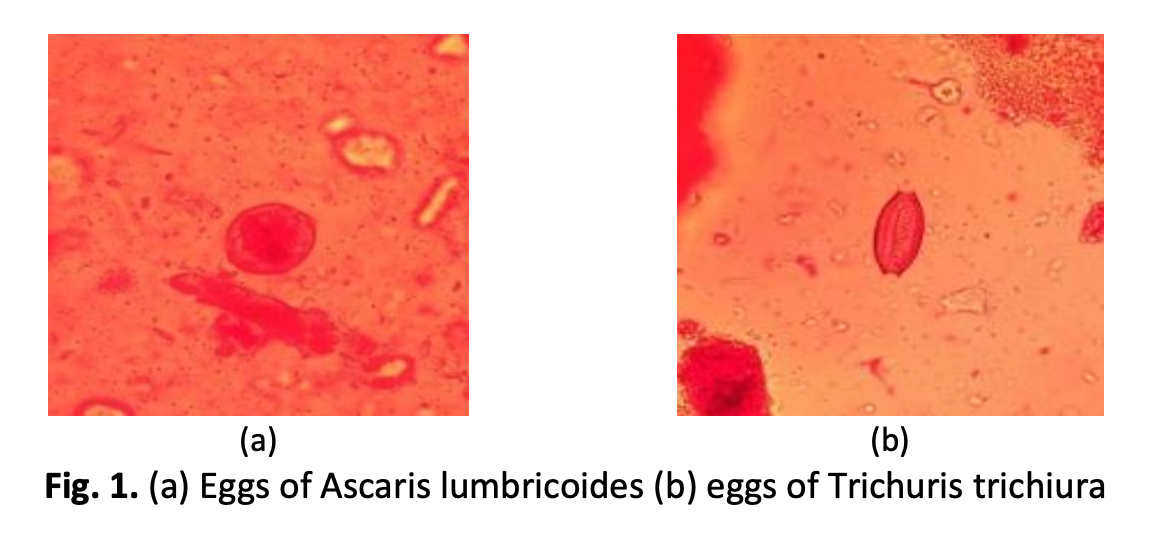Comparison of Nitrogen Levels in Normal Faeces and Faeces Infected by Ascaris Lumbricoides and Trichuris Trichiura
DOI:
https://doi.org/10.37934/araset.30.2.1318Keywords:
Nitrogen, Worm Egg Positive Stool, Ascaris Lumbricoides, Trichuris TrichiuraAbstract
Nitrogen is part of the main building blocks of protein in the human body. Nitrogen is formed from the breakdown of protein by the body. In the body nitrogen is used as a raw material for the formation of amino acids. In general, the results of the body's metabolism will be excreted through faeces and some in the urine, one of which is nitrogen. With Ascaris lumbricoides infection, nitrogen metabolism will be disrupted, so that excess levels of a substance in the body will be excreted through urine and faeces. Nitrogen levels in the body will be disturbed when the absorption of nutrients is disturbed by the body, for example during a worm infection. Types of helminth infections that commonly occur are soil-transmitted helminths such as Ascaris lumbricoides worm infection. The purpose of this study was to determine the comparison of nitrogen levels in the faeces of patients with Ascariasis infection and in normal faeces. Nitrogen levels were tested by examining the nitrogen levels in the faeces which contained Ascaris worm eggs in the stool specimen. The results showed that nitrogen levels in faeces infected by worms included sample A nitrogen content of 0.19%, sample B obtained nitrogen content of 2.16%, and nitrogen content in sample C was 2.05% with an average of 1.46% while nitrogen in normal stool specimens include sample A nitrogen content of 0.19%, sample B nitrogen content of 0.24% and sample C nitrogen content of 0.25% with an average of 0.22%. This shows that there is an increase in nitrogen levels in the body due to ascariasis infection in the body.
Downloads


























